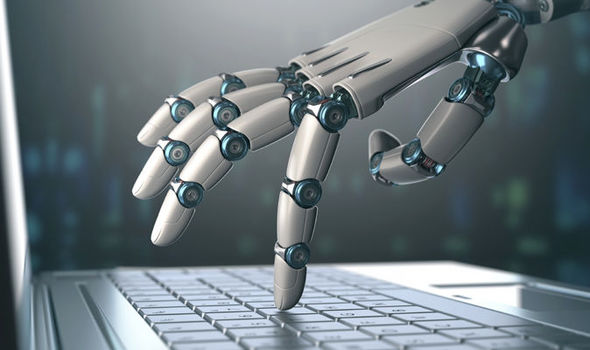Artificial intelligence (AI) is rapidly transforming the workplace, impacting industries and redefining job roles. While AI promises increased efficiency and productivity, concerns linger about the potential displacement of human workers. This article delves into the rise of AI in the workplace, exploring its benefits and drawbacks, and analyzing how humans and machines can work together for a more productive and fulfilling future.
From Science Fiction to Reality: The Rise of AI
AI, once relegated to the realm of science fiction, is now a tangible reality. Machine learning algorithms, capable of learning and adapting without explicit programming, are at the forefront of this revolution. These algorithms can analyze vast amounts of data, identify patterns, and make predictions with impressive accuracy.
The AI Advantage: Automation and Efficiency
AI systems excel in performing repetitive tasks with speed and precision. They can automate data entry, customer service inquiries, and complex financial calculations, freeing up human employees to focus on more strategic and creative endeavors. This automation can lead to increased efficiency, reduced errors, and ultimately, improved business outcomes.
Beyond Automation: AI for Decision-Making and Creativity
The capabilities of AI extend beyond simple automation. Machine learning algorithms can analyze vast datasets and identify trends that humans might miss. This information can be used to make data-driven decisions, optimize marketing strategies, and personalize customer experiences. Additionally, AI is increasingly being used in creative fields, assisting with tasks like content creation, product design, and music composition.
The Human Factor: Skills for the Future
While AI automates certain tasks, it is unlikely to replace human workers entirely. The uniquely human abilities of critical thinking, problem-solving, creativity, and emotional intelligence remain irreplaceable. As AI becomes more prevalent, the focus will shift towards developing complementary skills that allow humans and machines to collaborate effectively.
Reskilling and Upskilling: Preparing for the AI Workforce
The rise of AI necessitates workforce reskilling and upskilling initiatives. Employees need to develop skills that complement AI, such as data analysis, communication, and critical thinking. Educational institutions and businesses alike have a significant role to play in preparing the workforce for the changing landscape.
The Future of Work: Collaboration, Not Competition
The future of work lies in successful collaboration between humans and AI. Machines can handle the heavy lifting of data processing and repetitive tasks, while humans can focus on creative problem-solving, strategizing, and building relationships. This collaborative approach can lead to a more efficient, innovative, and ultimately, more rewarding work experience.
Addressing the Concerns: The Human Cost of AI
Despite the potential benefits, ethical considerations and potential risks associated with AI in the workplace cannot be ignored. One major concern is job displacement. As AI automates tasks, some jobs will undoubtedly become obsolete. Businesses and policy-makers need to develop strategies to address potential job losses, such as retraining programs and social safety nets.
Bias in AI Systems: Ensuring Fairness and Transparency
AI systems are only as good as the data they are trained on. Biased data can lead to biased algorithms, perpetuating existing inequalities in the workplace. Ensuring fairness and transparency in AI systems is crucial to avoid discriminatory hiring practices and promote diversity in the workforce.
Conclusion: A Human-Centric Approach to AI
The rise of AI in the workplace presents both opportunities and challenges. By focusing on the complementary nature of human and machine intelligence, businesses can leverage the power of AI while ensuring a smooth transition for the workforce. Reskilling initiatives, ethical considerations, and a human-centric approach to AI development are crucial for creating a future workplace that benefits both humans and machines.
